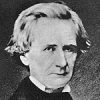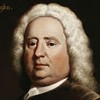Poets, orators, even philosophes, say the same things about fame we were told as boys to encourage us to win prizes. What they tell children to make them prefer being praised by their nannies to eating jam tarts is the same idea constantly drummed into us to encourage us to sacrifice our real interests in the hope of being praised by our contemporaries or by posterity.
[Ce que les poètes, les orateurs, même quelques philosophes nous disent sur l’amour de la Gloire, on nous le disait au Collège, pour nous encourager à avoir les prix. Ce que l’on dit aux enfans pour les engager à préférer à une tartelette les louanges de leurs bonnes, c’est ce qu’on répète aux hommes pour leur faire préférer à un intérêt personnel les éloges de leurs contemporains ou de la postérité.]Nicolas Chamfort (1741-1794) French writer, epigrammist (b. Nicolas-Sébastien Roch)
Products of Perfected Civilization [Produits de la Civilisation Perfectionée], Part 1 “Maxims and Thoughts [Maximes et Pensées],” ch. 1, ¶ 85 (1795) [tr. Parmée (2003), ¶ 69]
(Source)
(Source (French)). Alternate translations:The things which poets, orators, and even a few philosophers tell us about the love of Glory, are exactly the things we are told at College to encourage us to win prizes. And what they say to children to make them prefer the praise of their nurses to a tartlet, they repeat to grown men to make them prefer the eulogy of their fellows or of posterity to personal advantage.
[tr. Mathers (1926)]All that the poets, the orators, and even certain philosophers tell us about the love of fame we were told at school to urge us to win prizes. All that is said to encourage children to prefer the praise of their mentors to a piece of pie is repeated to men to make them consider their personal profit less desirable than the plaudits of their contemporaries and of posterity.
[tr. Merwin (1969)]Things said by poets, orators, even some philosophers, about love of glory, were told to us at the Collège to encourage us to win prizes. What children are told to incline them to prefer a slice of tart to their nurses' approval, is the same as what men are repeatedly told to make them put the commendation of their contemporaries, or that of posterity, before their personal interest.
[tr. Pearson (1973)]What poets, orators, even several philosophers have said about the love of fame, was told to us at school to encourage us to win prizes.
[tr. Dusinberre (1992)]What poets, orators, and even philosophers say to us about love of glory is the same as what people said to us in the colleges to encourage us to compete for prizes. What people tell children to make them prefer the praise of their nurses to something silly is the same thing that people repeat to men to make them prefer the praise of their contemporaries or of posterity to their own self-interest.
[tr. Siniscalchi (1994)]
Quotations about:
bribery
Note not all quotations have been tagged, so Search may find additional quotes on this topic.
To a shower of gold most things are penetrable.
Thomas Carlyle (1795-1881) Scottish essayist and historian
The French Revolution: A History, Part 1, Book 3, ch. 7 (1.3.7) (1837)
(Source)
On Jean-Jacques Duval d'Eprémesnil's use of bribery to obtain, in May 1788, an advance copy of a royal edict depriving the Parlement of Paris of its functions.
A fine is a bribe paid by a rich man to escape the lawful penalty of his crime. In China such bribes are paid to the judge personally. In America they are paid to him as agent for the public. But it makes no difference to the men who pay them, nor to the men who can’t pay them.
H. L. Mencken (1880-1956) American writer and journalist [Henry Lewis Mencken]
A Little Book in C Major, ch. 4, § 7 (1916)
(Source)
Variants:FINE. A bribe paid by a rich man to escape the lawful penalty of his crime. In China such bribes are paid to the judge personally; in America they are paid to him as agent for the public. But it makes no difference to the men who pay them -- nor to the men who can't pay them.
[A Book of Burlesques, "The Jazz Webster" (1924)]Fine -- A bribe paid by a rich man to escape the lawful penalty of his crime. In China such bribes are paid to the judge personally; in America they are paid to him as agent for the public. But it makes no difference to the men who pay them -- nor to the men who can’t pay them.
[Chrestomathy, ch. 30 "Sententiae" (1949)]
There nothing so sacred that money cannot corrupt it, and nothing so well defended that money cannot over throw it.
[Nihil esse tam sanctum quod non violari, nihil tam munitum quod non expugnari pecunia possit.]
Marcus Tullius Cicero (106-43 BC) Roman orator, statesman, philosopher
In Verrem [Against Verres; Verrine Orations], Action 1, ch. 2 / sec. 4 (1.2.4) (70 BC) [tr. Berry (2006)]
(Source)
Boast by Caius Verres (or so Cicero alleges).
Various translations vary as to whether this is 1.2.4 (which I have chosen) or 1.1.4 (as noted).
(Source (Latin)). Alternate translations:Nothing is so holy that it cannot be corrupted, or so strongly fortified that it cannot be stormed by money.
[tr. Yonge (1903), 1.1.4]No sanctuary is too holy for money to defile it, no fortress too strong for money to capture it.
[tr. Greenwood (1928)]Nothing, he declares, is too sacred to be corrupted by money; nothing too strong to resist its attack.
[tr. Grant (1960)]There is nothing so sacred that it cannot be sullied, nor anything so protected that it cannot be overcome by money.
[tr. @sententiq (2017), 1.1.4]There is no sanctuary so holy that money cannot profane it, no fortress so strong that money cannot take it by storm.
[Source]
There is always someone ready to be lured to ruin by hope of gain.
[ἀλλ᾽ ὑπ᾽ ἐλπίδων ἄνδρας τὸ κέρδος πολλάκις διώλεσεν.]
Sophocles (496-406 BC) Greek tragic playwright
Antigone, l. 221ff [Creon] (441 BC) [tr. Watling (1947)]
(Source)
Original Greek. Alternate translations:
- "But backed by hope, lucre has ruined many." [tr. Donaldson (1848)]
- "Yet hope of gain hath lured men to their ruin oftentimes." [tr. Storr (1859)]
- "But hope of gain full oft ere now hath been the ruin of men." [tr. Campbell (1873)]
- "Yet by just the hope of it, money has many times corrupted men." [tr. Jebb (1891)]
- "Yet lucre hath oft ruined men through their hopes." [tr. Jebb (1917)]
- "Yet money talks, and the wisest have sometimes been known to count a few coins too many." [tr. Fitts/Fitzgerald (1939)]
- "But often we have known men to be ruined by the hope of profit." [tr. Wyckoff (1954)]
- "But love of gain has often lured a man to his destruction." [tr. Kitto (1962)]
- "But all too often the mere hope of money has ruined many men." [tr. Fagles (1982)]
- "But hope -- and bribery -- often have led men to destruction." [tr. Woodruff (2001)]
- "But profit with its hopes often destroys men." [tr. Tyrell/Bennett (2002)] https://diotima-doctafemina.org/translations/greek/sophocles-antigone/#post-1273:~:text=But%20profit,with%20its%20hopes%20often%20destroys%20men.
- "Yet there are men who the mere hope of winning has killed them." [tr. Theodoridis (2004)]
- "And yet men have often been destroyed because they hoped to profit in some way." [tr. Johnston (2005)]
- "But often profit has destroyed men through their hopes." [tr. Thomas (2005)]
- "But the profit-motive has destroyed many people in their hope for gain." [tr. @sentantiq (2018)]
Our political system has been thoroughly corrupted, and by the usual suspect — money, what else? The corruption is open, obscene, and unmistakable. The way campaigns are financed is a system of legalized bribery. We have a government of special interests, by special interests, and for special interests. And that will not change until we change the way campaigns are financed.
Molly Ivins (1944-2007) American writer, political columnist [Mary Tyler Ivins]
You Got to Dance With Them What Brung You, Introduction (1998)
(Source)
A Friend, that you buy with Presents, will be bought from you.
Thomas Fuller (1654-1734) English physician, preacher, aphorist, writer
Gnomologia: Adages and Proverbs, # 121 (1732)
(Source)
Before a Cat will condescend
To treat you as a trusted friend,
Some little token of esteem
Is needed, like a dish of cream.T. S. Eliot (1888-1965) American-British poet, critic, playwright [Thomas Stearns Eliot]
Old Possum’s Book of Practical Cats, “The Ad-dressing of Cats” (1939)
(Source)
An honest politician is one who when he is bought will stay bought.
Simon Cameron (1799-1889) American businessman and politician
(Attributed)
Cameron was infamous for his corruption, but this is not found in his writing or reliable accounts, and similar phrases can be found in the era. More discussion here.
You have oppressed the poor and robbed them of their grain. And so you will not live in the fine stone houses you build or drink wine from the beautiful vineyards you plant. I know how terrible your sins are and how many crimes you have committed. You persecute good people, take bribes, and prevent the poor from getting justice in the courts. And so, keeping quiet in such evil times is the smart thing to do! Make it your aim to do what is right, not what is evil, so that you may live. Then the Lord God Almighty really will be with you, as you claim he is.
The Bible (The Old Testament) (14th - 2nd C BC) Judeo-Christian sacred scripture [Tanakh, Hebrew Bible], incl. the Apocrypha (Deuterocanonicals)
Amos 5:11-14 [GNT (1976)]
(Source)
Alternate translations:Forasmuch therefore as your treading is upon the poor, and ye take from him burdens of wheat: ye have built houses of hewn stone, but ye shall not dwell in them; ye have planted pleasant vineyards, but ye shall not drink wine of them. For I know your manifold transgressions and your mighty sins: they afflict the just, they take a bribe, and they turn aside the poor in the gate from their right. Therefore the prudent shall keep silence in that time; for it is an evil time. Seek good, and not evil, that ye may live: and so the Lord, the God of hosts, shall be with you, as ye have spoken.
[KJV (1611)]Well then, since you have trampled on the poor man, extorting levies on his wheat -- those houses you have built of dressed stone, you will never live in them; and those precious vineyards you have planted, you will never drink their wine. For I know that your crimes are many, and your sins enormous: persecutors of the virtuous, blackmailers, turning away the needy at the city gate. No wonder the prudent man keeps silent, the times are so evil. Seek good and not evil so that you may live, and that Yahweh, God of Sabaoth, may really be with you as you claim he is.
[JB (1966)]Therefore because you trample on the poor and take from them levies of grain, you have built houses of hewn stone, but you shall not live in them; you have planted pleasant vineyards, but you shall not drink their wine. For I know how many are your transgressions, and how great are your sins -- you who afflict the righteous, who take a bribe, and push aside the needy in the gate. Therefore the prudent will keep silent in such a time; for it is an evil time. Seek good and not evil, that you may live; and so the Lord, the God of hosts, will be with you, just as you have said.
[NRSV (1989 ed.)]Assuredly,
Because you impose a tax on the poor
And exact from them a levy of grain,
You have built houses of hewn stone,
But you shall not live in them;
You have planted delightful vineyards,
But shall not drink their wine.
For I have noted how many are your crimes,
And how countless your sins --
You enemies of the righteous,
You takers of bribes,
You who subvert in the gate
The cause of the needy!
Assuredly,
At such a time the prudent keep silent,
For it is an evil time.
Seek good and not evil,
That you may live,
And that the ETERNAL, the God of Hosts,
May truly be with you,
As you think.
[RJPS (2006)]
Money is said to be power, which is, in some cases, true; and the same may be said of knowledge; but superior sobriety, industry and activity, are a still more certain source of power; for without these, knowledge is of little use; and, as to the power which money gives, it is that of brute force, it is the power of the bludgeon and the bayonet, and of the bribed press, tongue and pen.
William Cobbett (1763-1835) English politician, agriculturist, journalist, pamphleteer
Advice to Young Men, Letter 1, #40 (1829)
(Source)
ALFRED: Because some men aren’t looking for anything logical, like money. They can’t be bought, bullied, reasoned or negotiated with. Some men just want to watch the world burn.
Christopher Nolan (b. 1970) English-American film director, screenwriter, producer
The Dark Knight (2008) [with Jonathan Nolan]
(Source)
The system by which Zaire works … is very simple. Every official you encounter will make life as unpleasant for you as he possibly can until you pay him to stop it. In US dollars. He then passes you on to the next official who will be unpleasant to you all over again.
SHEPHERD’S SON: He seems to be of
great authority. Close with him, give him gold; and
though authority be a stubborn bear, yet he is oft
led by the nose with gold.William Shakespeare (1564-1616) English dramatist and poet
Winter’s Tale, Act 4, sc. 4, l. 932ff (4.4.932-935) (1611)
(Source)
CALVIN: If I’ve learned one thing in life, it’s that everyone has his price. Raise the ante high enough and there’s no such thing as scruples! People will do anything if the price is right!
HOBBES: What’s your price?
CALVIN: Two bucks cold cash up front.
HOBBES: I don’t know which is worse, … that everyone has his price, or that the price is always so low.


















